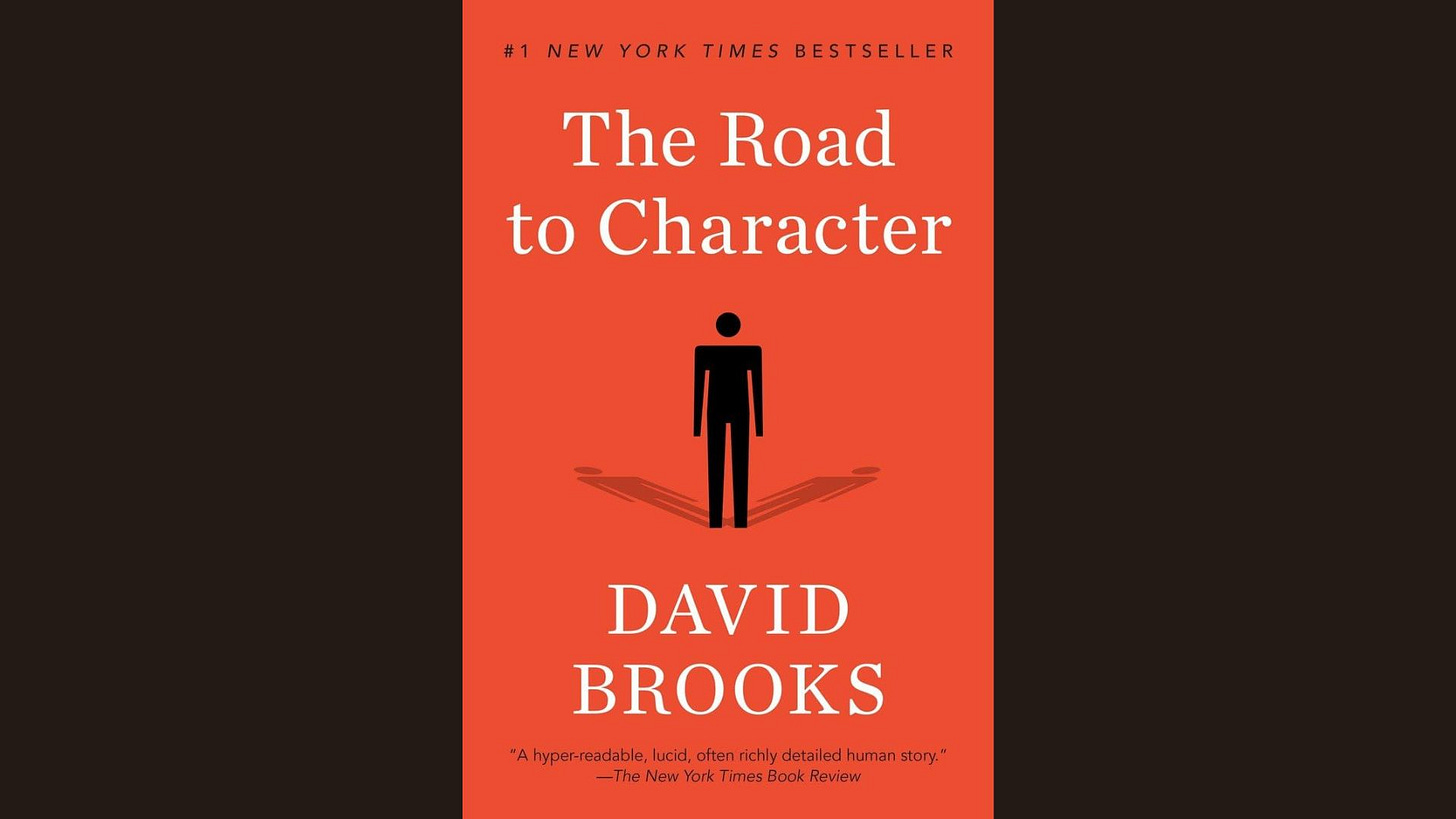Book Byte #312 "The Road to Character" by David Brooks
📣 Curious Quotes from the Author
“We are called at certain moments to comfort people who are enduring some trauma. Many of us don't know how to react in such situations, but others do. In the first place, they just show up. They provide a ministry of presence. Next, they don't compare. The sensitive person understands that each person's ordeal is unique and should not be compared to anyone else's. Next, they do the practical things--making lunch, dusting the room, washing the towels. Finally, they don't try to minimize what is going on. They don't attempt to reassure with false, saccharine sentiments. They don't say that the pain is all for the best. They don't search for silver linings. They do what wise souls do in the presence of tragedy and trauma. They practice a passive activism. They don't bustle about trying to solve something that cannot be solved. The sensitive person grants the sufferer the dignity of her own process. She lets the sufferer define the meaning of what is going on. She just sits simply through the nights of pain and darkness, being practical, human, simple, and direct.”
“Humility is the awareness that there’s a lot you don’t know and that a lot of what you think you know is distorted or wrong.”
“Recovering from suffering is not like recovering from a disease. Many people don’t come out healed; they come out different.”
“We don’t become better because we acquire new information. We become better because we acquire better loves. We don’t become what we know. Education is a process of love formation. When you go to a school, it should offer you new things to love.”
“The self-effacing person is soothing and gracious, while the self-promoting person is fragile and jarring. Humility is freedom from the need to prove you are superior all the time, but egotism is a ravenous hunger in a small space—self-concerned, competitive, and distinction-hungry. Humility is infused with lovely emotions like admiration, companionship, and gratitude.”
“Wisdom isn’t a body of information. It’s the moral quality of knowing what you don’t know and figuring out a way to handle your ignorance, uncertainty, and limitation.”
“In this method, you don’t ask, What do I want from life? You ask a different set of questions: What does life want from me? What are my circumstances calling me to do? In this scheme of things we don’t create our lives; we are summoned by life.”
📚 Cognition of the Book’s Big Idea
The values of humility and the pursuit of character have been marginalized as our culture has veered dangerously toward achievement and self-obsession. The pleasures of life, however, are not found in a fantasy home or work. They are engaged in the moral struggle to become a more modest and compassionate person.
▶ Collaborative Video of the Day
Until Tomorrow,
Jason (Founder Club255)

